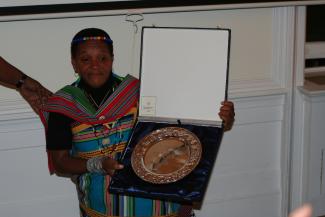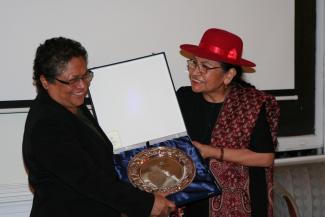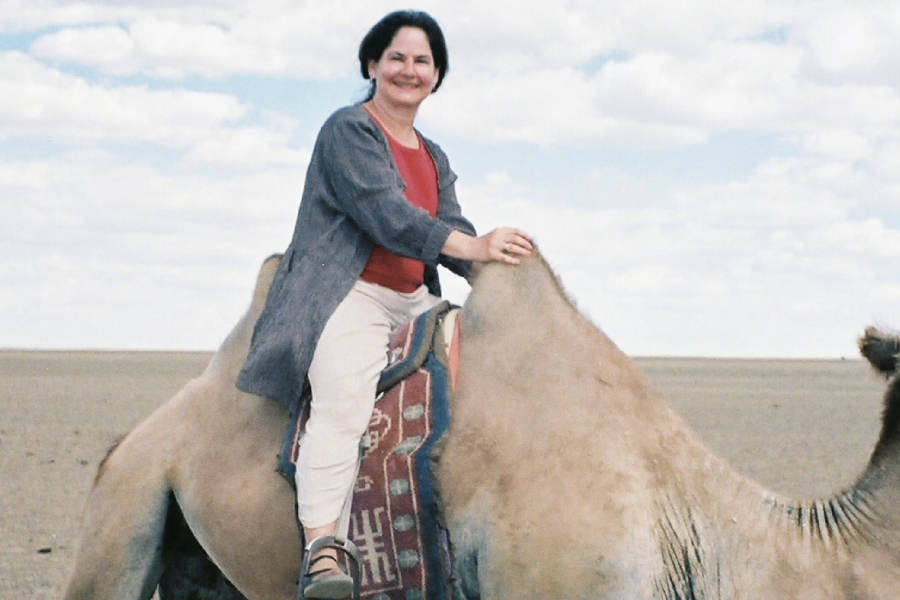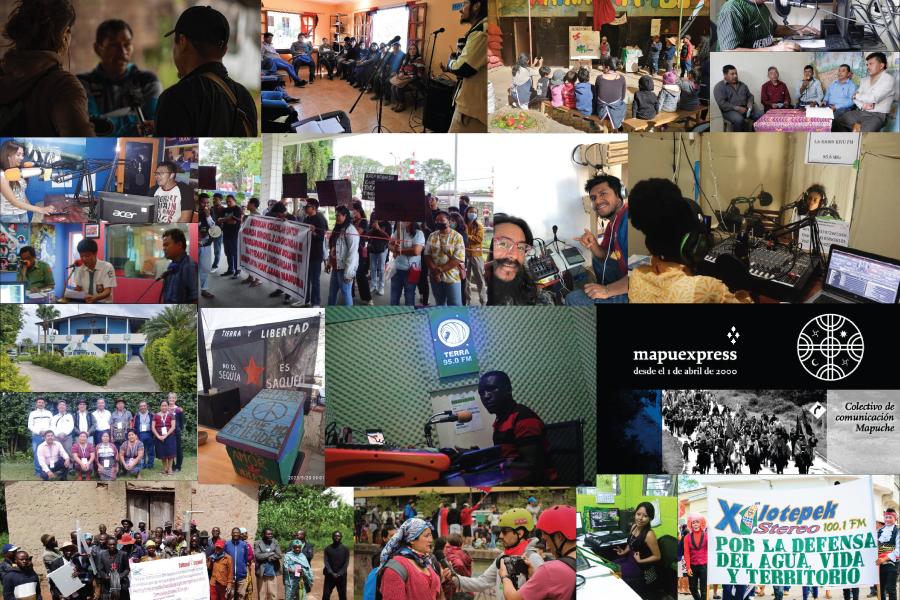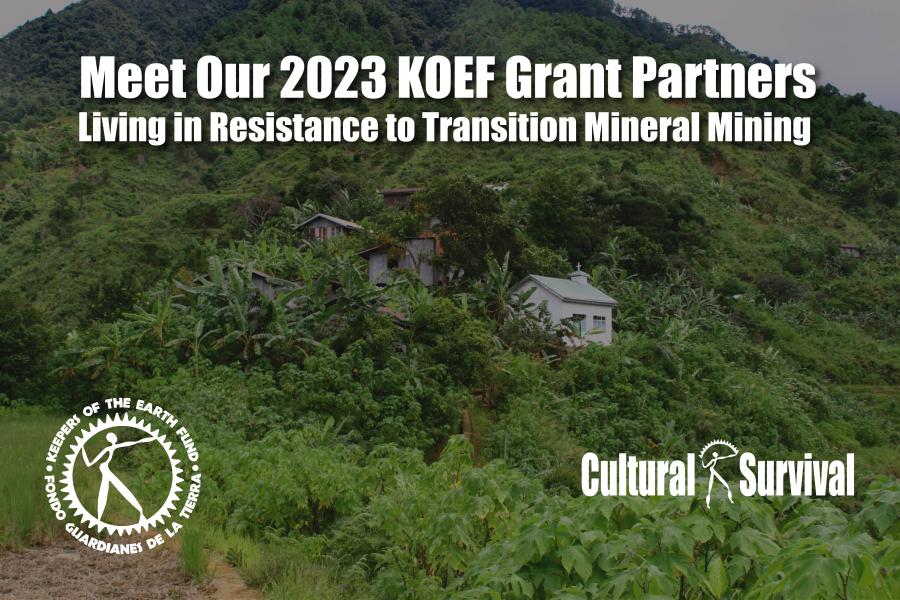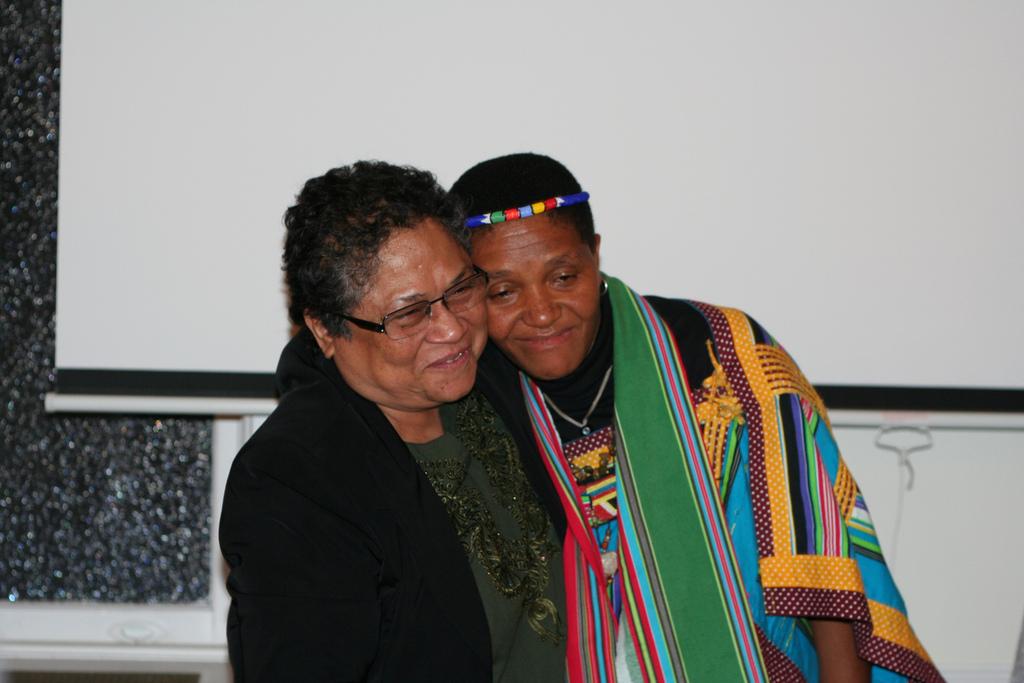
On May 24, 2013, in New York City, FIMI (Foro Internacional de Mujeres Indigenas/International Indigenous Women’s Forum) presented two important Indigenous women leaders Mphatheleni Makaulule (VhaVenda) from South Africa and Dr. Mirna Cunningham (Miskita) from Nicaragua with the 2013 FIMI Global Leadership Awards. The award celebrates the impact of Indigenous women leaders and is being given to Makaulule in recognition of her work with women and communities in the VhaVenda region of South Africa and to Cunningham for her medical and advocacy work in Nicaragua and in the international arena.
Mariana Lopez from FIMI says "We are celebrating indigenous women who have implemented creative ways to address pressing social issues, demonstrating courage, creativity and vision. Indigenous women desire to no longer be viewed as vulnerable victims. They must be recognized as having huge capacity as catalysts of socio-cultural change. The stories of Mphatheleni and Mirna will leave a legacy for future generations and their experiences will inspire or empower other women at the 'Global Leadership School of Indigenous Women' to assume leadership."
FIMI’s mission is to bring together Indigenous women leaders and human rights activists from different parts of the world to coordinate agendas, capacity-build, and to develop leadership roles. FIMI encourages Indigenous women's participation in international decision-making processes by ensuring the consistent and serious inclusion of indigenous women’s perspectives in all discussions regarding human rights.
Moved by this recognition Makaulule commented, "I say 'Aa, Ro livhuwa' (Thank you) to FIMI. We, as women, hold the responsibility for the custodianship of life. To all women around the world, we must remember our role as mothers and healers. I believe that women need to stand up now as never before, against mining and all that is destroying life. We must do this for the sake of future generations of all of life. I never thought that my vision and being a phangami (a leader from behind) would be recognized in this way and I would like to acknowledge the Makhadzi and communities of Venda, and all those who are committed to reviving their ancestral path. This award from FIMI is a great motivation to continue to stand for the real role of indigenous women in protecting life."
In 1999 Makaulule built the “Luvhola Cultural Village” with the help of community members. Then, in 2007, she founded the Mupo Foundation which works to strengthen the food sovereignty of local communities by reviving indigenous seed; facilitating and encouraging intergenerational learning; rebuilding confidence in the value of indigenous knowledge systems; and rebuilding the confidence of the makhadzi (women community leaders and traditional knowledge holders). Together they are now recuperating local seed varieties, especially the sacred finger millet in order to secure food sovereignty and continue the rituals in which the plant is used. They are also currently campaigning against Australian Mining company CoAL of Africa who plan to open a mine in the region. Makaulule previously received a Bill Clinton Fellowship to study leadership in the USA, and in 2012 she was one of the UN Forest Heroes Program and Award finalists.
Dr. Mirna Cunningham was named member of the UN Permanent Forum of Indigenous Issues for the period 2011-2013, serving as chair in 2011. Cunninghamis from the community of Waspam, located on the banks of the Wangki River in Nicaragua and is the first female Miskita doctor and became the first female Miskita governor of the autonomous region’s regional government. As governor she played an important role in the consultation process on the autonomy of the multi-ethnic region and the negotiation of peace agreements that resulted in the approval of the Law of Autonomy of the Indigenous Peoples and Ethnic Communities from the Atlantic Coast of Nicaragua (1987) and the establishment of the first autonomous regional governments. She is also the founding director of the newly established University of the Autonomous Regions of Nicaragua’s Caribbean Coast (URACCAN). Cunningham has also served as the coordinator of the Intercultural Indigenous Council (CII). She has been Secretary General of the Indigenous Inter-American Institute and has worked as a consultant to various multilateral, bilateral, governmental and nongovernmental organizations on health, education, land, environment and natural resources, racial discrimination, evaluation mechanisms and international human rights instruments on Indigenous Peoples, among others. She has worked in issues of intercultural health and traditional medicine, and continues to collaborate with Nicaragua’s Autonomous Regional Governments in establishing Intercultural Health models. The Pan American Health Organization recognized her work by naming her “Hero of Health in the Americas” in 2001.
Criteria for Selection
The 2013 FIMI Global Leadership Awards honor two Indigenous women who have demonstrated exceptional leadership and who have made a meaningful impact in their communities, countries or at the international level defending their own rights. This award recognizes and celebrates the important contributions made by Indigenous women throughout the world. The nomination for individual indigenous women was guided by the following criteria:
• SIGNIFICANCE: The leader addresses critical issues for Indigenous Peoples.
• EFFECTIVENESS: The leader is very effective in achieving positive changes for indigenous women.
• CREATIVITY: The leader implements creative strategies that improve indigenous women’s lives.
• INCLUSIVENESS: The leader promotes inclusion and builds bridges between different groups or individuals that have different backgrounds.
• SPIRITUALITY: The leader has demonstrated respect for traditional knowledge systems, particularly the principle of the Seventh Generation, detailed in the Great Law of the Iroquois, which declares that in each action, we should consider the impact of our decisions on the next seven generations and also we are interconnected to the previous seven generations of ancestors.
The recipients of the 2013 FIMI award were selected by FIMI as an inspiration for the Global Leadership School of Indigenous Women, a group of 23 indigenous women leaders of the regions of Latin America, North America, Asia, Africa, the Arctic and Pacific. The Global Leadership School of Indigenous Women is a leadership training program that takes place during the UN Permanent Forum on Indigenous Issues (UNPFII) in New York. The School’s general objective is to strengthen capacities of indigenous women leaders from different parts of the world, particularly in the use of international instruments on Human Rights, Indigenous Peoples Rights and Indigenous Women’s Rights, and advocacy strategies to promote and sustain social change. The training sessions are conducted in three phases: through a virtual platform from January to April 2013, a two week intensive class prior to the beginning and during the 12th session of UNPFII, and a monitoring process through a virtual platform to support the implementation of advocacy plans at the local, national and regional level.
This year’s Global Leadership School participants took part in lectures and discussions on political participation, leadership and women, technologies for activism, advocacy and negotiation techniques, ethics and compliance to lead organizations, and human rights among others. Indigenous women who were Global Leadership School participants also had the opportunity to be part of UNPFII meetings of the Indigenous Women's Caucus as well as the overall Indigenous Peoples Caucus.
For more information on FIMI visit www.fimi-iiwf.org
